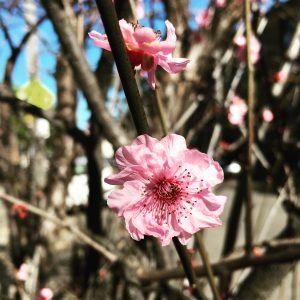Time to prepare for hay fever season
For many people, the joy of spring is dampened by the return of hay fever and allergy season. Even if the sneezing, itching and fatiguing symptoms haven’t yet hit – now is the time to prepare for the seasonal onslaught.
Five ways to prepare for hayfever season
- Spring clean: if you’re prone to asthma or hay fever wear a mask or hire a professional to deep clean your home. Dust mites also trigger an allergic reaction in many hay fever or asthma sufferers. Starting the season with minimal dust in your home can decrease your background allergen load. Don’t forget to clean curtains, mattress, carpet and ducted heating vents, if you have them.
- Wash your face whenever you’ve been outdoors. Get into the habit now of splashing your face with water after spending time outside, to reduce airborne allergens. Make sure you don’t miss your eye brows and lashes, where pollens love to cling.
- Start taking a medicinal dose of vitamin C every day. It is a natural anti-histamine and can dampen down allergic responses. Consider taking 500 – 1,000 mg of vitamin C, preferably before leaving the house in the morning. Don’t forget that caffeine can decrease the effectiveness of this and other vitamins, so try to push out your morning dose of tea or coffee for an hour or two. Carry some vitamin C tablets with you, to take an extra dose at the first sign of hay fever symptoms.
- Stock up on elder flower tea. This is a useful remedy to help alleviate hay fever symptoms, especially when taken in combination with vitamin C. Use one teaspoon of elder flower tea per cup, and drink up to four cups per day as required.
- Ease off other foods and drinks that may congest your sinuses. Reduce or eliminate dairy products and flour during spring. Beer and wine, may also be a source of aggravation so be mindful of what and how much you drink.
What can you do when allergies hit? Read more tips on understanding and treating hay fever.
Hay fever and the risk of thunderstorm asthma
In recent years, we’ve seen a rise in this deadly climate reaction. A combination of grass pollens and stormy weather can trigger life threatening allergic reactions. These events appear to be occurring more frequently, especially in South East Australia, in spring and early summer. This can trigger wheezing, breathlessness, coughing and tightness in the chest. Even if you’ve not had asthma since childhood or only get occasional hay fever, it’s worth being aware of thunderstorm asthma and carrying the appropriate medication with you on high pollen days.
Is your cold actually hay fever?
As a child I never had hayfever. I’d lived in three different parts of the world before moving to Melbourne in my twenties. It only took a year or two to acquire the condition, which was quite a shock while living a comparatively healthy life.
For those who’ve never had hay fever before, it’s often mistaken for a cold that comes and goes. Can you tell the difference between a respiratory infection and an allergy?
Need help preventing or treating hay fever?
Gill works with clients in Sydney, Melbourne and around the world via Skype. New patients can book a Wellbeing Plan to kick start their allergy prevention strategy. If you’ve worked with Gill before select a naturopathy follow on consultation, to get on top of the season.
Why suffer unnecessarily? Book your Sydney and Skype sessions online now.
Similar Posts:
Social Share
One Comment
Leave a Reply
You must be logged in to post a comment.








Pingback: Gill Stannard July update: welcome to spring - Gill Stannard